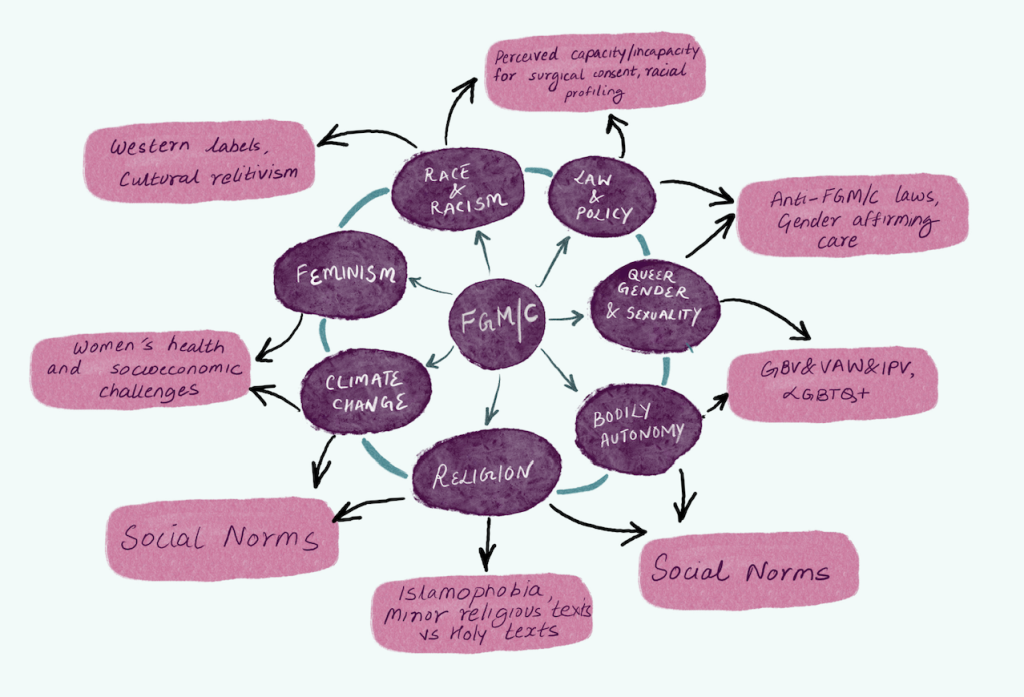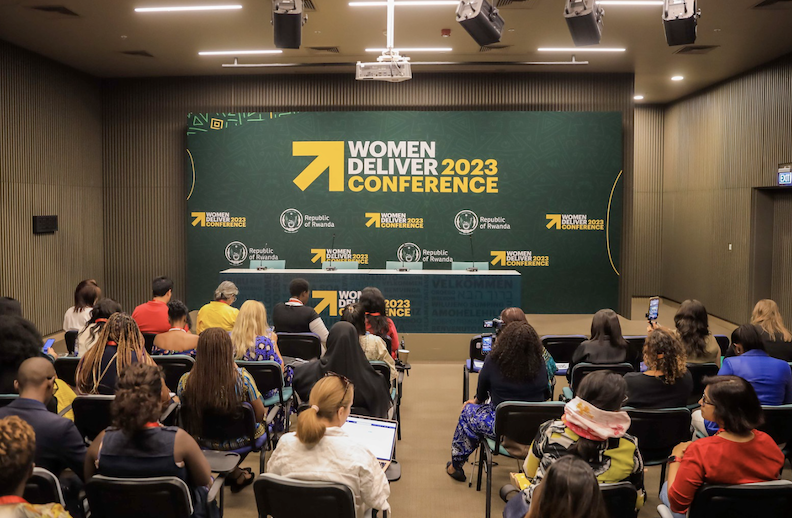Research Study on Clitoral Reconstructive Surgery in Canada

A research study titled Clitoral Reconstructive Surgery in Canada is currently looking for interview participants who are survivors of female genital cutting and have undergone clitoral reconstructive surgery and/or those who have not yet undergone this procedure but are interested in doing so. Active recruitment for this study will remain open until May 2024. Who is this study for? Survivors interested in clitoral reconstructive surgery Survivors who have been referred for clitoral reconstructive surgery Survivors who have previously undergone clitoral reconstructive surgery What are the goals of this study? To develop a greater understanding of survivor’s interests, motivations, and/or expectations in electing to undergo clitoral reconstructive surgery To identify how well survivor’s surgical outcomes meet their initial expectations To improve the referral process for survivors who wish to undergo clitoral reconstructive surgery To highlight the importance of quality care for survivors of FGM/C All interviews will be strictly confidential. To learn more about this study and how to participate, please contact the principal investigator, Kiah Leone, from the School of Health Sciences at the University of Northern British Columbia (UNBC) by email at leone@unbc.ca.
Training the Virginia Department of Criminal Justice on how to support survivors of FGM/C

On August 8th, Sahiyo hosted a training for the Virginia Department of Criminal Justice, titled “Cross-Collaborative Work: Incorporating Female Genital Mutilation/Cutting Survivors into Support Services in Virginia.” Even with growing recognition of FGC in the U.S., many service-providers, including law enforcement, are not adequately equipped to address FGC in the United States. This training provided an introductory foundation for an understanding of FGC, as well as the role the legal system and victims advocates have in addressing and responding to this issue. In addition, the training addressed key competencies and best practices for working with and interacting with survivors of FGC and/or practicing communities. This training was attended by 60+ members of the Virginia Department of Criminal Justice Services, including victims advocates, researchers, law enforcement, legal services, healthcare providers, and others.
Sahiyo to launch first report from Examining Intersections Between FGM/C and other Social Oppressions Research Project

Sahiyo is excited to announce the upcoming publication of our new report, Examining the Current State of Critical Intersections: Female Genital Mutilation/Cutting and Social oppressions. The report explores how different forms of oppression intersect to limit survivors’ access to resources, as well as how the work to end FGM/C is connected to other themes across the human experience. In July 2021, Sahiyo hosted a public webinar titled, “Critical Intersections: Anti-Racism and Female Genital Mutilation/Cutting (FGM/C).” The discussion highlighted how systemic racism negatively effects the fight against FGM/C. The webinar was highly successful, engaging more than 300 people. Using that momentum, Sahiyo launched a research project to further understand how different forms of oppression affect marginalized communities that practice FGM/C and how to connect with other activist movements to strengthen our efforts to end FGM/C. This report is the first of a series on this research, and identifies current understandings of critical factors intersecting with FGM/C and outline the gaps in our knowledge. The publication is organized around seven core themes that intersect with FGM/C: religion, climate change, feminism, race and racism, law and policy, queer gender and sexuality, and bodily autonomy. This review serves as a significant starting point for Sahiyo’s own data collection for the Examining Intersections Between FGM/C and other Social Oppressions Research Project, the results of which will be disseminated in Feb 2024.
Jo Keogh reflects on the 2023 Women Deliver Conference

The Women Deliver 2023 Conference (WD 2023) took place in-person, as well as virtually, from 17-20 July 2023, in Kigali, Rwanda. The conference convened around 6,000 people in Kigali, and over 200,000 people online. Amongst those attending the conference was Jo Keogh, Sahiyo U.S. Advisory Board member as well as a founding member of the Connecticut Coalition to End FGM/C. She reflects on her experience in Kigali: Many things impressed me about Rwanda: the beauty of the land, the warmth and hospitality of the people, and, of course, the exciting experience of attending the Women Deliver Conference. Being in the presence of people committed to ending FGM/C from all over the globe was both moving and encouraging. Especially profound was hearing stories from frontline workers who have made ending this harmful practice their personal mission. Our own Mariya Taher is among them. I knew before traveling to the conference that Mariya is well-known here in the States for her tireless work around ending FGM/C. What I didn’t realize is that she is recognized and respected internationally for that work. Representatives from organizations fighting FGM/C all over the world knew who Mariya was. When I told people at the conference that I was with Sahiyo, their eyes would light up. It was remarkable to witness. I am so grateful to have had the opportunity to attend the Women Deliver conference and to understand the impact that Sahiyo has had the world over. The more I learn about Mariya, the more I admire who she is and all that she has accomplished. Learn more about the 2023 WD Conference.
